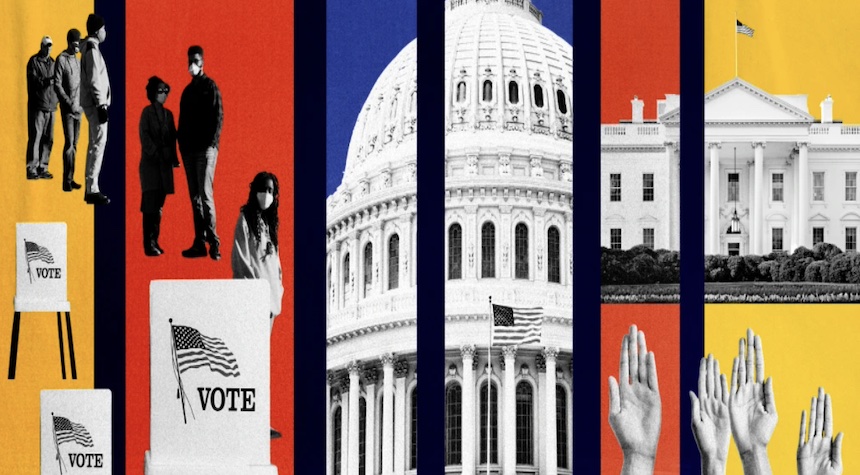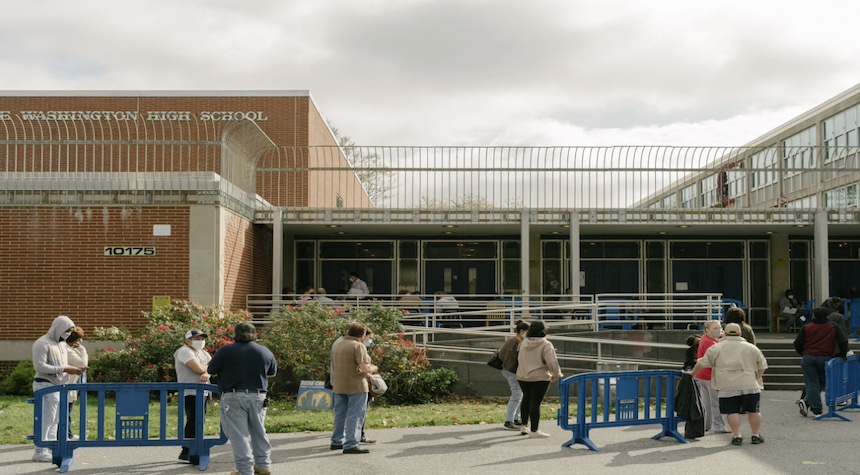A Louisiana Supreme Court Justice has overturned a runoff election on Nov. 18, 2023, that was decided by one vote. While this case might seem insignificant, it may indicate that the United States is starting to see a trend. In particular, candidates who have been unfairly defeated refuse to accept flawed election results. And, more importantly, judges do the right thing in the face of clear evidence that shenanigans influence the outcome of an election.
In the Louisiana election to fill the post of Caddo Parish sheriff, Democrat Henry Whitehorn faced off against Republican John Nickelson. Whitehorn won by one vote.
Nickelson noted that the unofficial results for the sheriff race showed a margin of one vote out of over 43,000 votes. It’s a truly unprecedented event. “That is something we haven’t seen in over a century.
Nickelson claimed that “many, many dozens, at least, of the ballots which we could inspect during the limited time we had, had no signatures whatsoever.” “In other words, ballots were submitted without voter signatures.”

Whitehorn was able to win by just one vote after a recount, adding three votes for each candidate. Mickelson filed a lawsuit, disputing the results. He also called for a new vote.
Justice Joseph Bleich of the Louisiana Supreme Court ruled on Tuesday that the election results are null and void. Bleich explained that it was “proven beyond doubt” that at least 11 votes were cast and counted illegally. It is therefore “legally impossible to determine what the actual vote should have been”.
Bleich, in an interesting aside, had to come out from retirement to serve “ad hoc”, after four justices recused, citing their friendships with Democrat Whitehorn. This story could’ve ended in a “good ol’ boys” corruption setup, where justice is impossible because everyone’s a crony. Instead, everyone did what was right, and a new vote will be held.
This is the second notable voided election of this year. These cases set a precedent that other plaintiffs and courts can follow when elections are close but have been affected by fraud, harvesting of ballots, faulty machines or other irregularities.

I’ve also been watching the race for Bridgeport mayor in Connecticut:
After the Election Day machines counted, John Gomes (a convicted felon with a criminal record for corruption) was ahead of Joe Ganim in Bridgeport’s Democrat primary. Bridgeport’s “midnight miracle” had “won Ganim by 251 votes.” Wanda Geter Pataky, a Ganim supporter, was filmed stuffing a ballot with a flurry of votes. Gomes, to his credit, refused to be railroaded. He vowed to continue fighting.
Gomes brought his case before the Connecticut Superior Court, where Judge William Clark ruled that the results of the primary were invalid and ordered a re-run. Clark’s judgment stated that “the court finds that the plaintiff has met their burden of proof, and established violations of placing absentee votes into drop boxes by individuals who were not designated as handling such ballots. The volume of ballots mishandled puts the results of the primary in serious doubt.

The new primary will take place on January 23, 2024, even though the Bridgeport general elections were conducted according to state law. Ganim was declared the winner. If Gomes wins over Ganim, a new mayoral race will be held in which Gomes is the Democrat’s nominee.
“Big deal, Caddo Parish Sherriff and Mayor of Bridgeport – who has ever heard of these places?” you huff. Remember that these two cases involve the most senior law enforcement officials in each state. The regional Federal courts are only a step away. These are important issues, and people involved in other campaigns are closely watching them.
Democrats do their best to discredit anyone who does not accept their “safest election ever!” They are calling those who question the results of 2020 “traitors” and “deniers”. The widespread problem of unsecure elections — illegal ballot harvesting, invalid ballots counted — must be addressed sooner or later. Today’s small cases could be the model for addressing tomorrow’s large, valid claims of electoral fraud.


